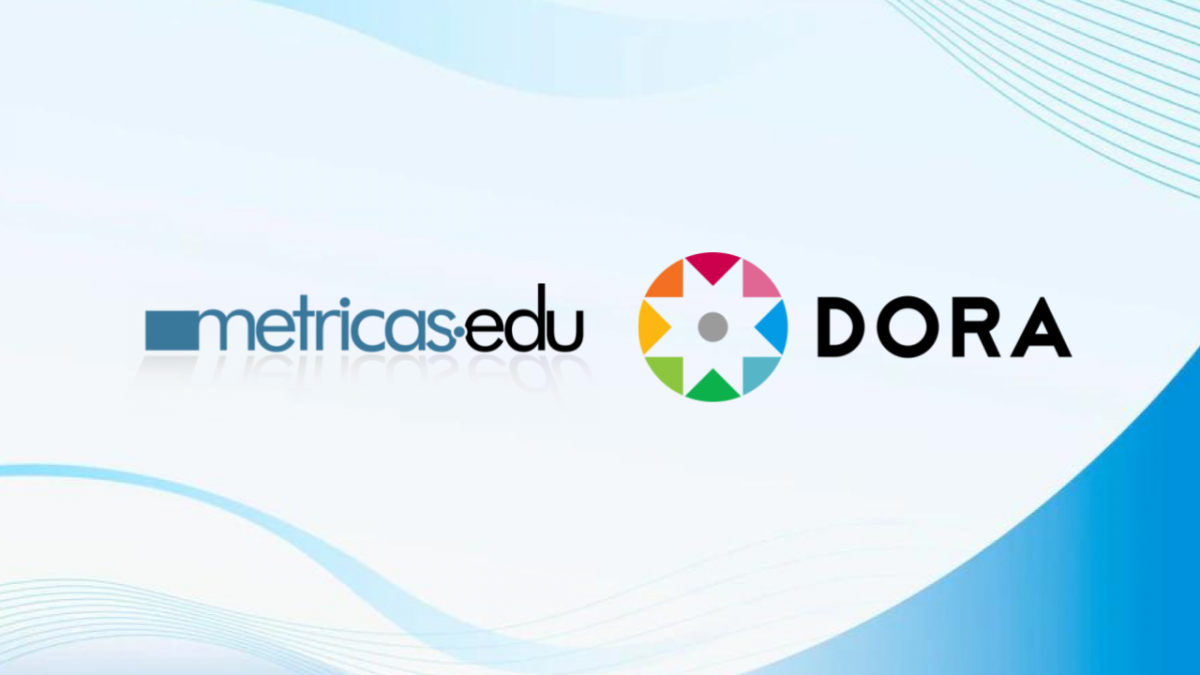Democratic renewal, food security, reindustrialization, digital transition, sustainability in the Amazon biome are critical challenges faced by Brazilian society
Category: Highlights

Projeto Métricas DORA partnership summary of findings

Evaluation of research results and researchers is in constant evolution. In a survey conducted together with the community of signatories of the San Francisco Declaration, we asked a group of academics engaged in evaluation processes in their institutions about the processes and management of evaluation in their university. To support Brazilian institutions wanting to review […]
The Magna Charta Universitatum 2020
The Magna Charta Universitatum was originally signed by 366 universities in 1988 on the 900th anniversary of the founding of the University of Bologna. The MCU is upheld by a non-profit observatory that ensures adherence to the agreement. The original 1988 agreement guaranteed institutional and academic freedom, and the indivisibility of teaching and research. Given […]
Embrapa released its 2020 Social Report. Its content offers key input and result statistics. Such metrics allow an estimation of the social impact of Embrapa’s research and extension. Impacts such as the number of jobs generated and the return on investment. The 2020 social reporting is based on Embrapa’s impact assessment model. A model that […]
This session was presented through a partnership between the International Network of Research Management Societies (INORMS), Research Evaluation Working Group (REWG). and Associação Brasileira de Gestores de Pesquisa (ABRAMA).
Professor John Aubrey Douglass from the University of California at Berkeley presents his thoughts on how the public university can improve their relationships with different segments of society. Comments by Prof. Elizabeth Balbachevsky, from the FFLCH/USP
Presentation held by Prof. Pedro N. Teixeira from U. do Porto during the V Workshop Metricas about Higher Education policies and management
On assuming the presidency of the United States on the 21st of January 2021, one of President Joe Biden’s first moves was to appoint Eric Lander as the new Director of the Office of Science and Technology Policy and as Science Advisor to the President. This title, for the first time in American history, was […]
This article was presented during the V Workshop Metricas by Prof. Nina Ranieri from the FD/USP Law School.
This comprehensive report focuses not on the performance of individual institutions, but on the performance of higher education systems. This approach allows important insights and comparisons that are not available to institutional level analyses. First of all, it can consider graduate outcomes in a comparative way that speaks not to the individual success of the […]

This text summarises the contribution of Prof. Yvonne Mascarenhas (IFSC-USP) to the V Workshop Metricas, held in December 2020. The text reports the long history of interaction between the university and society in the São Carlos region, in the state of São Paulo. This relation proved vital in the mobilisation of legislators to ensure public […]
This report provides a structured way of comparing the functioning of higher education systems. Approaches such as this encourage universities to think and strategise together and cooperate for visions of the future, rather than competing with one another.
Making of a good institutional report
The best university reports are written with their ideal audience in mind. These are the key stakeholders who make vital decisions about the financing of higher education institutions.
UNIFEI President’s Report
One of the enduring challenges for Brazilian higher education in public is the need to communicate to the public that money directed towards higher education and science is not expenditure; it is investment. Every real spent on public higher education pays off multiple times over for the economy. This is something that has been highlighted […]
This week the INORMS Research Evaluation Working Group published the findings of its work to develop a method for rating the World University Rankings. Critical evaluation of international comparisons according to principles of responsible research evaluation are an important way that the community can better understand how rankings work, and to turn a critical lens […]
Jacques Marcovitch, Universidade de São Paulo, Brazil THE Latam, July 7th, 2020 from 10:05 to 10h35 Good morning, I would like to thank Times Higher Education for providing such a unique opportunity to discuss the theme Universities for the public good: reasserting the value of higher education post-pandemic. At such an uncertain moment in our institutions, […]

As an epoch changing rupture event in human society, we can expect that almost all areas of the science system will be in some way affected by covid-19. These disruptions will lead to new challenges, new solutions to some challenges and newly impoverished actors who suddenly find themselves severely tested by the new environment.

How is Brazilian research performing? Public universities are complex institutions that fulfil a huge variety of functions and roles within society. They have differing missions, levels of output and attending a variety of different sectors of society. The universities who feature in international rankings are research-intensive – they are dedicated to the production of new […]
In times of crisis, the public need to know that universities are at the vanguard of the fight against the global pandemic. They are not, as the minister of education claimed, closed. In fact, the state universities’ positioning has been commendable, pointing out that the universities will continue to function, protect its community with distancing, […]
